Fleurs du Mal Magazine


Or see the index
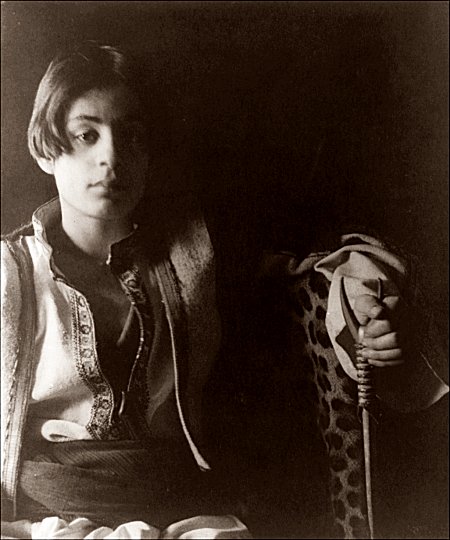
K h a l i l G i b r a n
(1883 – 1931)
A Poet’s Death is His Life
The dark wings of night enfolded the city upon which Nature had spread a pure white garment of snow; and men deserted the streets for their houses in search of warmth, while the north wind probed in contemplation of laying waste the gardens. There in the suburb stood an old hut heavily laden with snow and on the verge of falling. In a dark recess of that hovel was a poor bed in which a dying youth was lying, staring at the dim light of his oil lamp, made to flicker by the entering winds. He a man in the spring of life who foresaw fully that the peaceful hour of freeing himself from the clutches of life was fast nearing. He was awaiting Death’s visit gratefully, and upon his pale face appeared the dawn of hope; and on his lops a sorrowful smile; and in his eyes forgiveness.
He was poet perishing from hunger in the city of living rich. He was placed in the earthly world to enliven the heart of man with his beautiful and profound sayings. He as noble soul, sent by the Goddess of Understanding to soothe and make gentle the human spirit. But alas! He gladly bade the cold earth farewell without receiving a smile from its strange occupants.
He was breathing his last and had no one at his bedside save the oil lamp, his only companion, and some parchments upon which he had inscribed his heart’s feeling. As he salvaged the remnants of his withering strength he lifted his hands heavenward; he moved his eyes hopelessly, as if wanting to penetrate the ceiling in order to see the stars from behind the veil clouds.
And he said, “Come, oh beautiful Death; my soul is longing for you. Come close to me and unfasten the irons life, for I am weary of dragging them. Come, oh sweet Death, and deliver me from my neighbors who looked upon me as a stranger because I interpret to them the language of the angels. Hurry, oh peaceful Death, and carry me from these multitudes who left me in the dark corner of oblivion because I do not bleed the weak as they do. Come, oh gentle Death, and enfold me under your white wings, for my fellowmen are not in want of me. Embrace me, oh Death, full of love and mercy; let your lips touch my lips which never tasted a mother’s kiss, not touched a sister’s cheeks, not caresses a sweetheart’s fingertips. Come and take me, by beloved Death.”
Then, at the bedside of the dying poet appeared an angel who possessed a supernatural and divine beauty, holding in her hand a wreath of lilies. She embraced him and closed his eyes so he could see no more, except with the eye of his spirit. She impressed a deep and long and gently withdrawn kiss that left and eternal smile of fulfillment upon his lips. Then the hovel became empty and nothing was lest save parchments and papers which the poet had strewn with bitter futility.
Hundreds of years later, when the people of the city arose from the diseases slumber of ignorance and saw the dawn of knowledge, they erected a monument in the most beautiful garden of the city and celebrated a feast every year in honor of that poet, whose writings had freed them. Oh, how cruel is man’s ignorance!
Khalil Gibran
A Poet’s Death is His Life IV
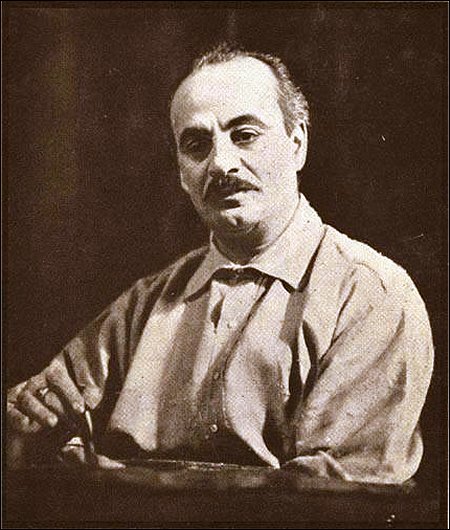
fleursdumal.nl magazine
More in: Archive G-H, Gibran, Khalil
.jpg)
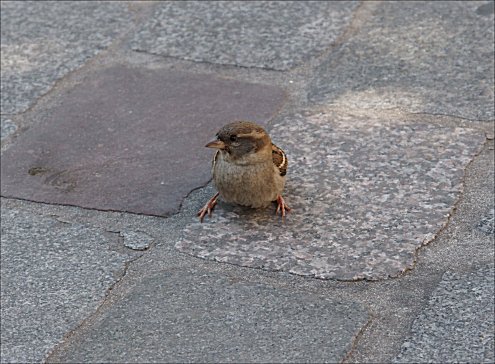

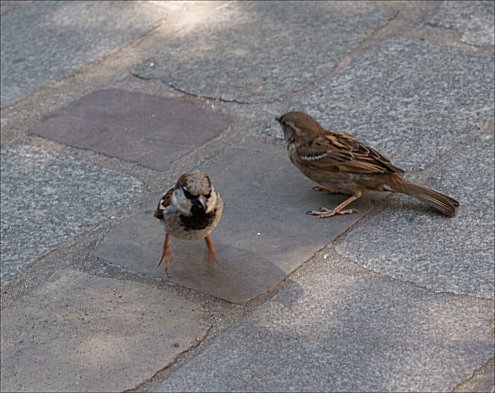
Johann Wolfgang von Goethe
(1749 – 1832)
Es fing ein Knab’ ein Vögelein
Es fing ein Knab’ ein Vögelein,
Hm! Hm!
Da lacht’ er in den Käfig ’nein
Hm! Hm!
So! So!
Hm! Hm!
Der freut’ sich traun so läppisch
Hm! Hm!
Und griff hinein so täppisch,
Hm! Hm!
So! So!
Hm! Hm!
Da flog das Meislein auf ein Haus
Hm! Hm!
Und lacht den dummen Buben aus,
Hm! Hm!
So! So!
Hm! Hm!
.jpg)

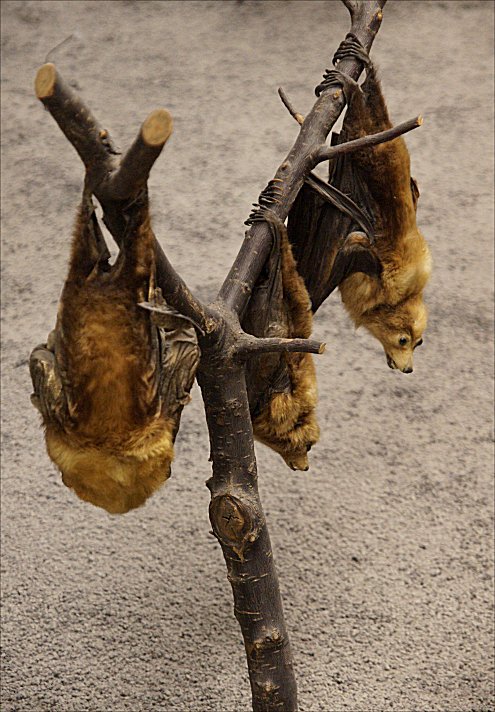
Hans Hermans Natuurdagboek Juli 2009
Foto’s: Hans Hermans
Gedicht: Johann Wolfgang von Goethe
kemp=mag poetry magazine – magazine for art & literature
More in: Goethe, Johann Wolfgang von, Hans Hermans Photos, MUSEUM OF NATURAL HISTORY - department of ravens & crows, birds of prey, riding a zebra, spring, summer, autumn, winter
.jpg)
.jpg)
Reactie van Remco Campert op het gedicht dat Ton van Reen
schreef ter gelegenheid van Camperts tachtigste verjaardag
op 28 juli 2009 en publiceerde op
kempis poetry magazine
Lees: Gedicht voor Remco Campert door Ton van Reen
More in: Archive C-D, Archive C-D, Archive Q-R, Archive Q-R, Campert, Remco, Reen, Ton van, Reen, Ton van, Remco Campert
.jpg)
Gedicht voor Remco Campert
door Ton van Reen
Als je tachtig bent, zou je heel veel over willen doen
maar bijna alles wat je hebt gedaan, zou je overslaan
en alle reizen die je als kind, later, wilde maken
maar waar je in alle haast nooit de tijd voor vond
maak je alsnog, je gaat op de fiets, tas met beleg en brood
naar Leuven en Sint Martens-Latem, om België te zien
en lift naar Rome, geen brood maar een meisje mee
En alles wat je als jongen van elf wilde worden
– maar nooit geweest bent, omdat je niet werd uitverkoren
zelfs nooit verkozen tot het voetbalteam van school
nooit spreekstalmeester in het wintercircus op het plein
of de jongen die de koeken en de limonade uit mocht delen –
wordt je alsnog, wanneer je droomt en winnaar blijkt
en wijn schenkt voor de gasten op je feest
Soms, als je na een reis per trein
– jij was de machinist die je altijd al had willen zijn –
op het podium staat in Oss of Zierikzee
verbaasd lezend uit een boek waarop jouw naam
vol verweerde tekst, doorleefd als een missaal
zo vaak herhaald, toch bijna uit jouw hoofd verweesd,
maar bij het spreken, klank en tonggevoel, weer nieuw
vraag jij je af of het jouw gedicht of gemeengoed is
De kampioen die je wilde zijn, macho en meisjesdroom,
sportheld op het basketbalveld achter het Rijksmuseum
waar jij je zomerse dagen verspeelde, sprong, wierp
maar je was net iets te kort en te broos om te winnen
Nu krijg je ruim de tijd om alles te doen
wat je door eigen schuld hebt nagelaten
alle avonturen waarover je droomde haal je nu in
op kleiner schaal: je gaat op reis door eigen huis
de keukenkast is Afrika, de muis vergroot je uit tot leeuw
in de rommelkamer vindt je de Himalaya, Nepal, Mongolië
het witte kastpapier de grote sneeuwbewaaide steppe
en na je reis over de Noordpool op het achterplat
vind je in bed Amerika, New York, de meisjesstad
Doe het, doe de dingen die je altijd wilde doen
voel je vrij en sla het stof van jaren van je af
vergroot de bloemen op je vensterbank tot oerwoudbos
zit aan tafel in je keuken met Neruda, Borges en Pierre Kemp
en schenk de wijn van het landgoed ‘Ouderdom Is Schijn’
Binnen je huid van vloeipapier, met het craquelé van tijd
blijf je die jongen van elf met lef voor tien
die heel veel wilde, storm, veel te weinig mocht
maar alles wilde zien wat niet gezien mocht worden
dacht dat hij alles kon, en met een bal gedichten in de hand
op het plein achter het museum naar de hemel sprong
Op 28 juli 2009 wordt Remco Campert tachtig jaar
Ton van Reen eert Remco Campert met bovenstaand gedicht
![]()
Ton van Reen: Gedicht voor Remco Campert
© Ton van Reen
kempis poetry magazine
More in: Archive C-D, Archive C-D, Archive Q-R, Archive Q-R, Art & Literature News, Campert, Remco, Reen, Ton van, Reen, Ton van, Remco Campert
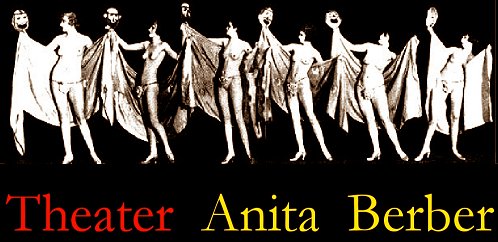
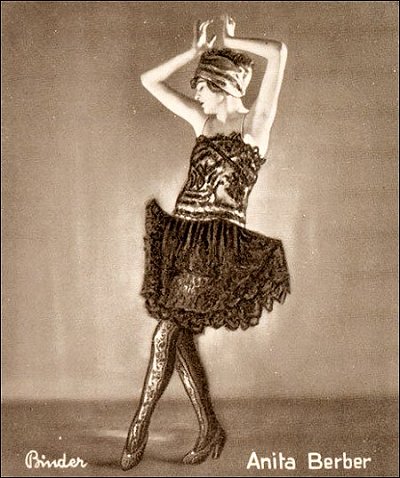
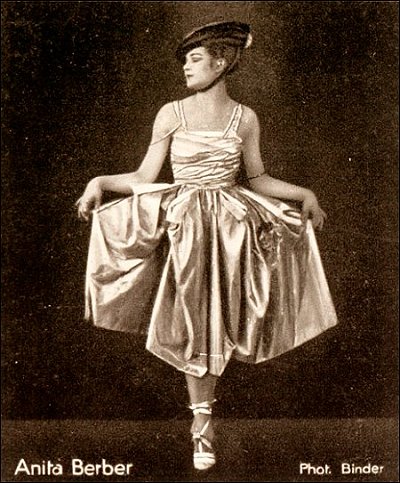
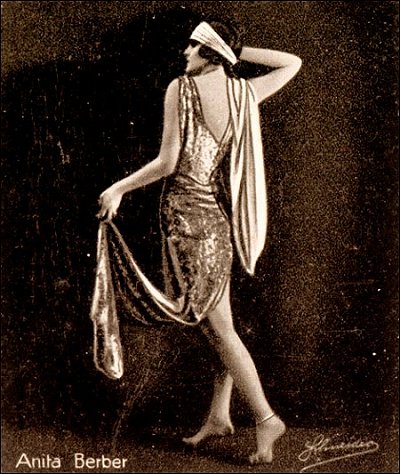
.jpg)
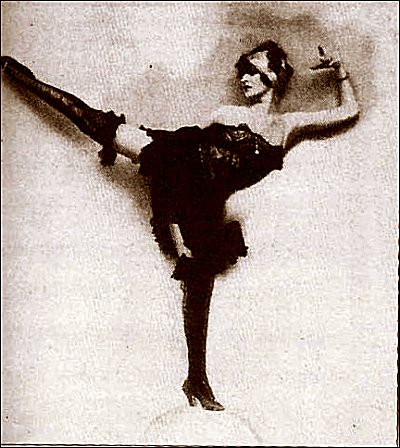
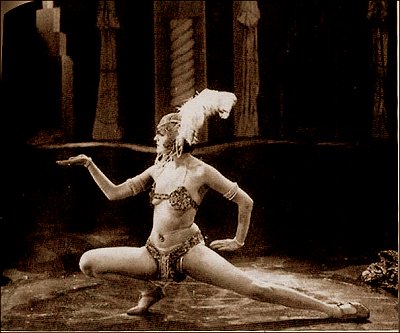
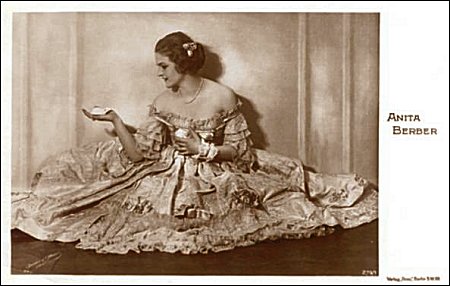
.jpg)
A n i t a B e r b e r
(1899-1928)
Anita Berber (June 10, 1899 – November 10, 1928) was a German dancer, actress and writer. Anita Berber was painted by many artists, among them Otto Dix. Her lover was dancer Sebastian Droste. In 1922, Berber and Droste published a book of poems, photographs, drawings: Kokain.
Berber’s cocaine addiction and bisexuality were matters of public chatter. She was allegedly the sexual slave of a woman and the woman’s 15-year-old daughter. She could often be seen in Berlin’s hotel lobbies, nightclubs and casinos, naked apart from a sable wrap and a silver brooch filled with cocaine. Besides being a cocaine addict, she was an alcoholic.
Anita Berber died of tubercolosis, at the age of 29, on November 10, 1928 in a Kreuzberg hospital and was buried at St. Thomas cemetery in Neukölln.
In 1987 Rosa von Praunheim made a film titled: Anita – Tänze des Lasters.
![]()
fleursdumal.nl magazine – magazine for art & Literature
More in: Anita Berber, Anita Berber, Berber, Anita, DANCE & PERFORMANCE
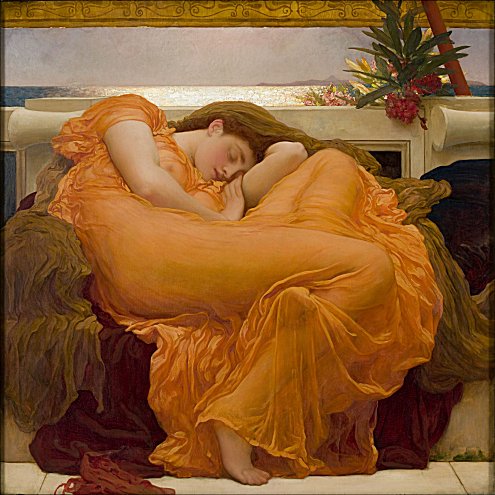
Frederic Leighton, Flaming June, ca. 1895, olieverf op doek, 119 x 119 cm,
Collectie Museo de Arte de Ponce,
Fundación Luis A. Ferré, Inc., Ponce, Puerto Rico
De Schone Slaapster
Victoriaanse schilderkunst uit het Museo de Arte de Ponce
4 juli 2009 t/m 20 september 2009
Gemeentemuseum Den Haag
Het prachtige Flaming June van Frederic Leighton (1830-1896) en vijf sprookjesachtige schilderijen van Edward Burne-Jones (1833-1898) vormen de hoogtepunten van een bijzondere tentoonstelling die van 4 juli tot en met 20 september 2009 te zien is in het Gemeentemuseum Den Haag. Deze topstukken uit het Victoriaanse tijdperk maken deel uit van de collectie van het Museo de Arte de Ponce in Puerto Rico en zijn nu voor het eerst in Nederland te zien.
De prerafaëlieten leverden de belangrijkste Engelse bijdrage aan de negentiende-eeuwse schilderkunst. Kunstenaars als Dante Gabriel Rossetti (1828-1882), John Everett Millais (1829-1896) en William Hunt (1827-1910) hadden later grote invloed op stromingen als het Symbolisme en de Esthetic Movement rond Oscar Wilde. In de Victoriaanse tijd vonden hun hoofse ideeën over de mythische schoonheid van de vrouw navolging en werd er veel aandacht besteed aan de materiaalweergave van stoffen, marmer en bloemen.
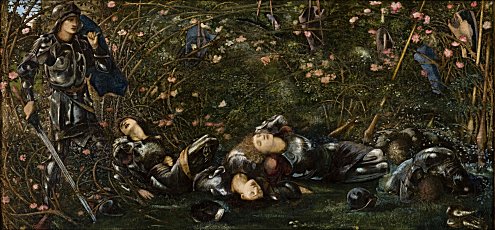
Sir Edward Coley Burne-Jones,
De prins treedt het woud binnen uit de kleine Doornroosje-serie,
1871 – 73, olieverf op doek, 61.28 x 129.54 cm,
Collectie Museo de Arte de Ponce, Fundación Luis A. Ferré, Inc., Ponce, Puerto Rico
Frederic, Lord Leighton schilderde zijn meesterlijke Flaming June rond 1895. Het is een beeld van een onschuldige, slapende vrouw in een oranje, doorschijnende jurk waaronder haar vrouwelijke vormen voorzichtig worden bloot gegeven. De bank waarop ze ligt is bekleed met kussens en rode doeken, op de achtergrond de glinstering van de zon in de zee. Met de weelderige lijnen en warme zonnige kleuren is dit schilderij een voorbeeld van Leightons voorliefde voor klassieke schoonheid en harmonie.
Een ander indrukwekkend doek is het monumentale De slaap van Koning Arthur in Avalon, van Edward Burne-Jones. Dit ruim zes meter brede schilderij wordt beschouwd als zijn ultieme meesterwerk waar hij van 1881 tot op de dag voor zijn dood in 1898 aan werkte om de compositie te perfectioneren. Door het grote formaat kan het schilderij alleen opgerold vervoerd worden en heeft het sinds de aankoop in de jaren 1960 het museum in Puerto Rico nooit meer verlaten. Het is dan ook zeer bijzonder dat het nu voor het eerst weer in Europa is te zien.
.jpg)
Sir Edward Coley Burne-Jones, De slaap van Koning Arthur in Avalon,
olieverfschets, ca. 1881, olieverf op doek, 83,2 x 288,9 cm,
Collectie Museo de Arte de Ponce, Fundación Luis A. Ferré, Inc., Ponce, Puerto Rico
In zijn onderwerpskeuze had Burne-Jones een voorkeur voor de fabelachtige wereld van sprookjes en legendes waarin hij zijn ideale wereld kon verbeelden. De cyclus van Doornroosje bijvoorbeeld bestaat uit drie fantastische werken waarin slapende menselijke figuren worden omringd door een zee van rozen. Hierin is goed te zien hoe Burne-Jones zich liet inspireren door het classicisme; zijn mensen zijn bijna onwerkelijk mooi, zijn draperieën vallen sierlijk en de composities zijn evenwichtig.
In de expositie zijn verder nog schilderijen opgenomen van onder andere Millais, Rossetti, Seddon en Hunt. Deze intieme, hoog kwalitatieve tentoonstelling bestaat uit tien schilderijen, zes tekeningen en een gouache, en is georganiseerd in samenwerking met het Museo del Prado in Madrid en het Memphis Brooks Museum of Art in de Verenigde Staten.
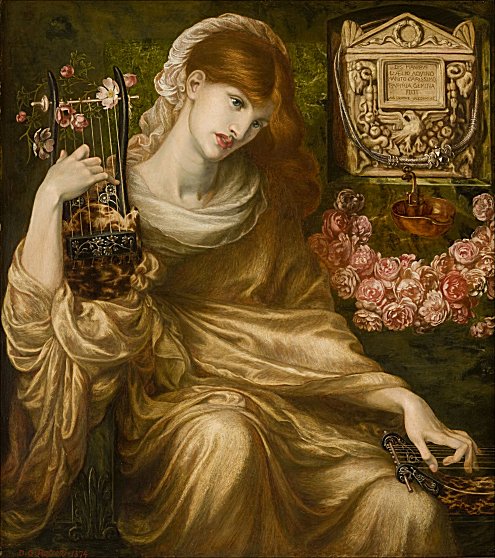
Dante Gabriel Rossetti, Romeinse weduwe, 1874,
olieverf op doek, 104,8 x 93,3 cm, Collectie Museo de Arte de Ponce,
Fundación Luis A. Ferré, Inc., Ponce, Puerto Rico
fleurdumal.nl magazine
More in: *The Pre-Raphaelites Archive, Art & Literature News
.jpg)

Marjorie Lowry Christie Pickthall
(1883-1922)
The Wife
Living, I had no might
To make you hear,
Now, in the inmost night,
I am so near
No whisper, falling light,
Divides us, dear.
Living, I had no claim
On your great hours.
Now the thin candle-flame,
The closing flowers,
Wed summer with my name, —
And these are ours.
Your shadow on the dust,
Strength, and a cry,
Delight, despair, mistrust, —
All these am I.
Dawn, and the far hills thrust
To a far sky.
Living, I had no skill
To stay your tread,
Now all that was my will
Silence has said.
We are one for good and ill
Since I am dead.
kempis poetry magazine
More in: Archive O-P
Al wat beweegt zal in beweging blijven
Erop en/of eronder: een keus is er niet
Niets dat beklijft en alles zal verdwijnen
Je leven een vuurwerk … of niet
Simon Vinkenoog
Dichter
18 juli 1928 – 12 juli 2009
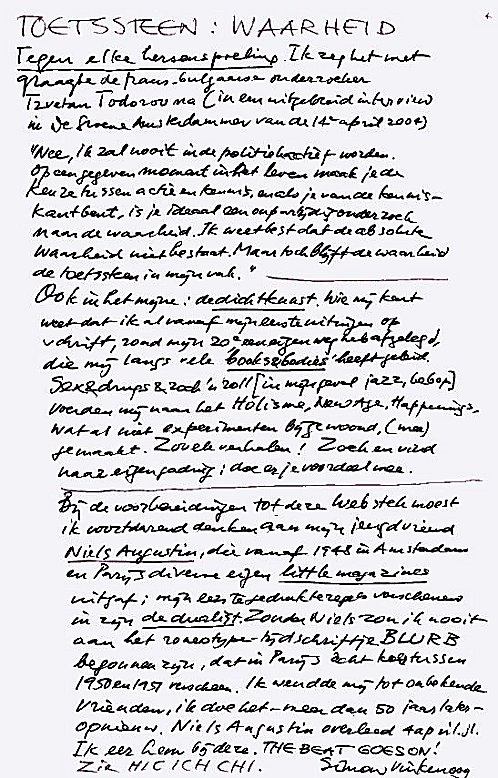
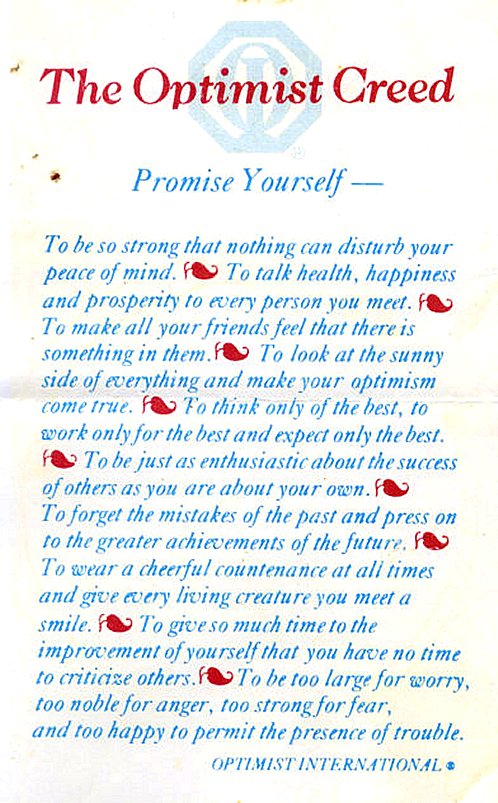
fleursdumal.nl magazine
More in: Archive U-V, In Memoriam, Simon Vinkenoog
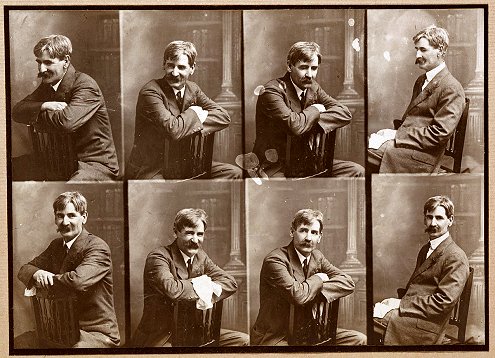
H e n r y L a w s o n
(1867-1922)
Interlude
Callaghan’s Hotel
There’s the same old coaching stable that was used by Cobb and Co.,
And the yard the coaches stood in more than sixty years ago;
And the public-private parlour, where they serve the passing swell,
Was the shoeing forge and smithy up at Callaghan’s Hotel.
There’s the same old walls and woodwork that our fathers built to last,
And the same old doors and wainscot and the windows of the past;
And the same old nooks and corners where the Jim-Jams used to dwell;
But the Fantods dance no longer up at Callaghan’s Hotel.
There are memories of old days that were red instead of blue;
In the time of “Dick the Devil” and of other devils too;
But perhaps they went to Heaven and are angels, doing well–
They were always open-hearted up at Callaghan’s Hotel.
Then the new chum, broken-hearted, and with boots all broken too,
Got another pair of bluchers, and a quid to see him through;
And the old chum got a bottle, who was down and suffering Hell;–
And no tucker-bag went empty out of Callaghan’s Hotel.
And I sit and think in sorrow of the nights that I have seen,
When we fought with chairs and bottles for the orange and the green;
For the peace of poor old Ireland, till they rang the breakfast bell–
And the honour of Old England, up at Callaghan’s Hotel.
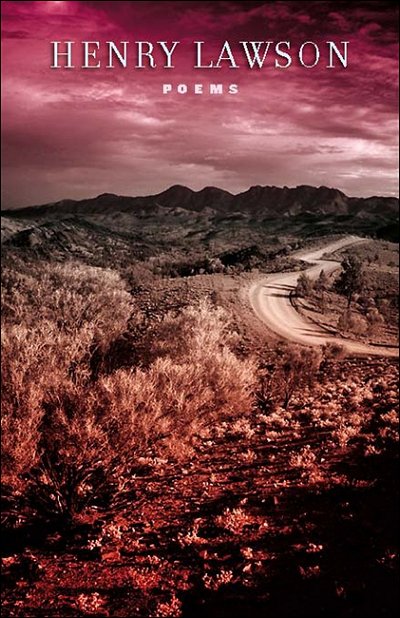
A Mixed Battle Song
Lo! the Boar’s tail is salted, and the Kangaroo’s exalted,
And his right eye is extinguished by a man-o’-warsman’s cap;
He is flying round the fences where the Southern Sea commences,
And he’s very much excited for a quiet sort of chap.
For his ships have had a scrap and they’ve marked it on the map
Where the H.M.A.S. Sydney dropped across a German trap.
So the Kangaroo’s a-chasing of his Blessed Self, and racing
From Cape York right round to Leeuwin, from the coast to Nevertire;
And of him need be no more said, save that to the tail aforesaid
Is the Blue Australian Ensign firmly fixed with copper wire.
(When he’s filled the map with white men there’ll be little to desire.)
I was sulky, I was moody (I’m inclined to being broody)
When the news appeared in Sydney, bringing joy and bringing tears,
(There’s an undertone of sorrow that you’ll understand to-morrow)
And I felt a something in me that had not been there for years.
Though I lean in the direction of most absolute Protection
(And of wheat on the selection)
And, considering Congestion and the hopeless unemployed,
I’d a notion (but I hid it) that, the way the Emden did it,
‘Twould be better for Australia if her “commerce” was destroyed.
You may say that war’s a curse, but the peace curse may be worse,
When it’s lasted till it’s rotten–rotten from the inmost core,
To the mouldy skin which we are, in the land we call the freer–
And I almost feel inclined to call for “Three Cheers for the War!”
For I think, when all is over, from Magellan’s Straits to Dover,
Things will be a great deal better than they ever were before.
But, since “Peace” and “Right” are squalling, I’ll content myself with calling
For three rousers–like the ringing cheers we used to give of yore–
For the Emden!
For the Sydney!
And their gallant crews and captains–both of whom we’ve met before!
And, for Kaiser William’s nevvy, we shall venture three cheers more!
Cheers that go to end a war.
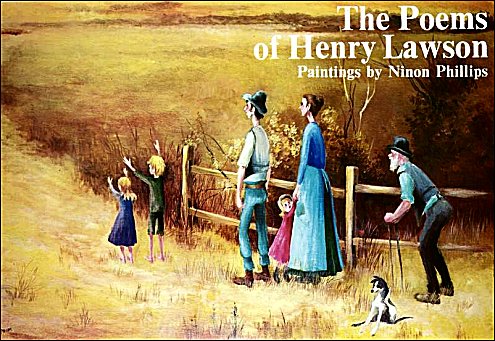
Somewhere up in Queensland
He’s somewhere up in Queensland,
The old folks used to say;
He’s somewhere up in Queensland,
The people say to-day.
But Somewhere (up in Queensland)
That uncle used to know–
That filled our hearts with wonder,
Seems vanished long ago.
He’s gone to Queensland, droving,
The old folks used to say;
He’s gone to Queensland, droving,
The people say to-day.
But “gone to Queensland, droving,”
Might mean, in language plain,
He follows stock in buggies,
And gets supplies by train.
He’s knocking round in Queensland,
The old folks used to say;
He’s gone to Queensland, roving,
His sweetheart says to-day.
But “gone to Queensland, roving”
By mighty plain and scrub,
Might mean he drives a motor-car
For Missus Moneygrub.
He’s looking for new country,
The old folks used to say;
Our boy has gone exploring,
Fond parents say to-day.
“Exploring” out in Queensland
Might only mean to some
He’s salesman in “the drapery”
Of a bush emporium.
To somewhere up in Queensland
Went Tom and Ted and Jack;
From somewhere up in Queensland
The dusty cheques come back:
From somewhere up in Queensland
Brown drovers used to come,
And someone up in Queensland
Kept many a southern home.
Somewhere up in Queensland,
How many black sheep roam,
Who never write a letter,
And never think of home.
For someone up in Queensland
How many a mother spoke;
For someone up in Queensland
How many a girl’s heart broke.

Down in the River
I’ve done with joys an’ misery,
An’ why should I repine?
There’s no one knows the past but me
An’ that ol’ dog o’ mine.
We camp an’ walk an’ camp an’ walk,
An’ find it fairly good;
He can do anything but talk,
An’ he wouldn’t if he could.
We sits an’ thinks beside the fire,
With all the stars a-shine,
An’ no one knows our thoughts but me
An’ that there dog o’ mine.
We has our Johnny-cake an’ “scrag,”
An’ finds ’em fairly good;
He can do anything but talk,
An’ he wouldn’t if he could.
He gets a ‘possum now an’ then,
I cooks it on the fire;
He has his water, me my tea–
What more could we desire?
He gets a rabbit when he likes,
We finds it pretty good;
He can do anything but talk,
An’ he wouldn’t if he could.
I has me smoke, he has his rest,
When sunset’s gettin’ dim;
An’ if I do get drunk at times,
It’s all the same to him.
So long’s he’s got me swag to mind,
He thinks that times is good;
He can do anything but talk,
An’ he wouldn’t if he could.
He gets his tucker from the cook,
For cook is good to him,
An’ when I sobers up a bit,
He goes an’ has a swim.
He likes the rivers where I fish,
An’ all the world is good;
He can do anything but talk,
An’ he wouldn’t if he could.

Henri Lawson: Four Poems
fleursdumal.nl magazine
More in: Archive K-L, Lawson, Henry
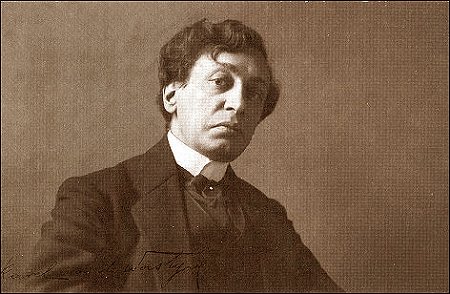
Karel van de Woestijne
(1878-1929)
De blind-gewordene
In naam van Vader en van Zoon,
in naam des heil’gen Geestes, amen.
– Ik ben de moeder van een woon
die blinkt aan duizend ramen.
‘k Lig, eeuwig-zwanger, in een kraam
dat van geen avond of geen morgen,
dat, hel van hoop noch zwart van zorgen,
niet is te noemen met een naam,
of ‘t zou, bezet en onbezeten,
Licht-zelven moeten heeten.
‘k Ben blind, en ‘k heb den dag beschaamd.
Ontkenning, ik, van alle duister,
heb ‘k alle vraag en vrees omraamd
met laaië van mijn luister.
Ik ben het vlak van elken muur
die, waar de dag blijft onbegonnen,
die, waar geen schemeringen ronnen
ter talm’ge waak van ‘t avond-uur,
bestendig van mijn blanke wake
een steeds-gelijke bake.
En ‘k ben de aanhoudende geboort
– o tuimel-vlucht van sneeuwen vlindren -,
‘k ben, alle dage’ en nachten voort,
de nieuwe klaart van kindren.
Hun weemling is mijn rijk bestaan.
De glanzen van mijn buik, ontsloten,
zijn, klachteloos en onverdroten,
herhaalde vorm van mijn vergaan,
maar zonder dat ik mijnen lijve
óneischend zoude blijven.
Zoo word ‘k beluik van, eindlijk, Nul;
‘k word, in aanhoudendheid herboren,
‘t abstracte zaad waar ‘k al het koren
in zijn beteeknis hul.
‘k Ben, alle ruimten afgewezen,
‘k ben, buiten klem en kleur van tijd,
in ‘t een’ge en wezenlooze wezen,
teeken der menigvuldigheid.
Zoo, blinde, ben ‘k, zal zijn geweest, en
word luister eeuw’ger feeste.
– Maar neen: ‘k ben de eindlijk-leêge korf
die, aller vruchten dóor-gedragen,
voor de eigen ijlt den geur verworf
gehéel van boome’ en hagen.
‘k Ben de gekéerde korf, die zwoel
van ‘t wandlen der gezwollen bijen,
aan rijke raten ‘t broed gedijen
en rijpend leven zoemen voel.
Zoo zal ik in mijn schoot niet gaêren
dan wat daar andren baren.
Ik ben de glans niet van de zaal
waar ‘k elke rib tot kaars zou rechten
en, zelve afzijdig, zelve vaal,
de klaarten zou beslechten.
Maar ‘k ben ontvangst van elken blik
die, zal mijn blik hem niet verrijken,
uit mij de duisternis doet wijken,
‘dat ik mijn nieuwe licht beschikk’
naar de orde die, van mijne bede,
verzekere ieders vrede.
Mijn vrede; úw vreê… – Maar is mijn licht,
de wolke van mijn nacht doorzonken,
is ooit der maan van mijn gezicht
een andre maan ontblonken,
o Vijver? Ben ik eerder niet
de vijver die zijn schielijk leven
der schicht’ge spoele voelt doorweven
die de àndre mane door me schiet?
Ben ik een vreê; ben ik uw vrede?:
gij deelt me úw mane mede.
Zoo ben ‘k aanhoudend elker borg
waar ‘k ben, aanhoudend, weder-borge.
En is uw zorge mijne zorg,
saêm zijn wij vreugd van morgen.
Omdat ik blind ben, mag uw zoen
mij binden met het onbekende;
kan mijne lippe, wáar ‘k me wende,
om aarde en hemel rijklijk vloên;
en kan mijn oog, mijne arreme ooge
zijn algemeenheid togen.
– Maar weet het: ‘k heb het duur gekocht.
Van elk genieten heerlijk jonger,
had ik ‘t onreikbare verzocht
tot dorst en honger.
In graagte of gruwel van den tijd,
met heel den glans van al mijne oogen,
zoude ik den felsten stamp gedoogen,
waar hij tot trots me hadd’ gewijd.
Ik zág toen. En ‘k zag blank me: teeken
dat niets mijn wil kon breken.
Maar, zuur van ‘t denke’, ozoon der daad,
dra zoudt gij branden in mijn wonden.
Ik heb gestaan als wie daar staat
aan zijnen paal gebonden.
Ik ben die mijne leden rek
(ik wás; maar ben want ik wil blijven),
waar pikt te zijnen lieven lijve
een hemelsch-blijde vogel-bek,
en ook, aan lever en aan liesen,
meer-menschelijke spiesen.
Mijn hart, het werd een vat vol stroop
waar vliege’ als zonden kwamen zitten:
gesloten vaas, waar in de hitte
insekten-wriemel kroop.
Mijn hoofd, het werd geheim festijn
voor ongekende en geer’ge gasten
die, ziek van ate of zat van vasten,
die, zwoel van derve’ of zuur van wijn,
lang moe maar maatloos-mild, bewezen
de onwaardigheid, te wezen.
Toen zou ‘k me zoeken in me-zelf.
Ik heb mij in me-zelf gevangen.
Mijn voet vond steeds herhaald gewelf
voor ‘t luistren naar mijn gangen.
Ik daalde. Aan elken kelder zong
het tij me toe van wachtend water,
en – géen begeerte, en zelfs geen schater
die rillend reed door mijne tong.
Me-zelf ter zij ten zelf-oorbore:
zelfs Gode ging ‘k te lore…
– – Maar néen: God is een koene knecht.
Ik zou me deelen noch beheeren;
Hij zou mij keeren uit ‘t gevecht:
Hij zou mijne oogen teren.
Hij zou mij geven de’ éenen nacht,
blind!, ‘dat geen nacht ik zou verzoeken;
‘dat ik geen slechten dag nog zoeke
waar slechts de dood nog loerend wacht.
Hij zou mij halen uit de holen
waar zelfs het vinde’ is dolen.
Hij heeft me, blijde, recht en net,
tot frisch een heldren disch gekoren.
Mijn oog, het heeft zich opgezet
om nieuwigheid te hooren.
En met de vreugde van een wees
heb ‘k weêr de zuiverheid gegeten.
Een engel zong, een ster verrees,
en ‘k was ‘t onmiddellijk vergeten.
Heb ‘k ooit geleden? ‘k ben verlost:
ik ben in nieuwigheid gedost.
Uit liefde-gons, uit zorg-geruisch,
uit alle zielen om mij samen,
werd ik de moeder van een huis
dat blinkt uit duizend ramen.
Ik ben die deel, en niet en deel
dan wat ‘k van allen heb ontvangen,
ik die der dieven van ‘t verlangen
de duurste en ruimste buiten heel.
Komt allen naêr, die hebt gegeven:
ik borg uw diepste leven…
– – Uit Uwen wille, Vader, Zoon,
en, heil’ge Geest, in Uwe hoede:
onder het goud van mijne kroon
druip ‘k van den rijksten bloede.
Gij hebt gebeurd mijn zéekre plaats:
mijn voet op de ijdelheid der schriften;
geheel-gewasschen van de driften
de gladde glanzen mijns gelaats;
en mijn gedicht dat, zonder einde,
gedicht dat, zónder einde…
… …
(uit: Het berg-meer, 1928)
Karel van de Woestijne poetry
fleursdumal.nl magazine
More in: Archive W-X, Woestijne, Karel van de
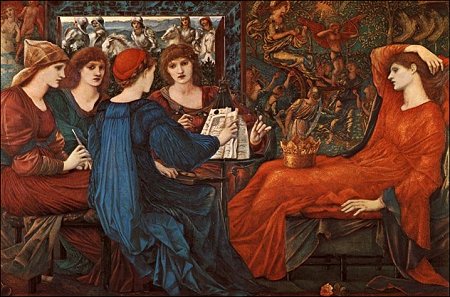
Algernon Charles Swinburne
(1837-1909)
In the water
The sea is awake, and the sound of the song
of the joy of her waking is rolled
From afar to the star that recedes, from anear
to the wastes of the wild wide shore.
Her call is a trumpet compelling us homeward:
if dawn in her east be acold,
From the sea shall we crave not her grace to rekindle
the life that it kindled before,
Her breath to requicken, her bosom to rock us,
her kisses to bless as of yore?
For the wind, with his wings half open, at pause
in the sky, neither fettered nor free,
Leans waveward and flutters the ripple to laughter
and fain would the twain of us be
Where lightly the wave yearns forward from under
the curve of the deep dawn’s dome,
And, full of the morning and fired with the pride
of the glory thereof and the glee,
Strike out from the shore as the heart in us bids
and beseeches, athirst for the foam.
Life holds not an hour that is better to live in:
the past is a tale that is told,
The future a sun-flecked shadow, alive and asleep,
with a blessing in store.
As we give us again to the waters, the rapture
of limbs that the waters enfold
Is less than the rapture of spirit whereby,
though the burden it quits were sore,
Our souls and the bodies they wield at their will
are absorbed in the life they adore–
In the life that endures no burden, and bows not
the forehead, and bends not the knee–
In the life everlasting of earth and of heaven,
in the laws that atone and agree,
In the measureless music of things, in the fervour
of forces that rest or that roam,
That cross and return and reissue, as I
after you and as you after me
Strike out from the shore as the heart in us bids
and beseeches, athirst for the foam.
For, albeit he were less than the least of them, haply
the heart of a man may be bold
To rejoice in the word of the sea as a mother’s
that saith to the son she bore,
Child, was not the life in thee mine, and my spirit
the breath in thy lips from of old?
Have I let not thy weakness exult in my strength,
and thy foolishness learn of my lore?
Have I helped not or healed not thine anguish, or made not
the might of thy gladness more?
And surely his heart should answer, The light
of the love of my life is in thee.
She is fairer than earth, and the sun is not fairer,
the wind is not blither than she:
From my youth hath she shown me the joy of her bays
that I crossed, of her cliffs that I clomb,
Till now that the twain of us here, in desire
of the dawn and in trust of the sea,
Strike out from the shore as the heart in us bids
and beseeches, athirst for the foam.
Friend, earth is a harbour of refuge for winter,
a covert whereunder to flee
When day is the vassal of night, and the strength
of the hosts of her mightier than he;
But here is the presence adored of me, here
my desire is at rest and at home.
There are cliffs to be climbed upon land, there are ways
to be trodden and ridden, but we
Strike out from the shore as the heart in us bids
and beseeches, athirst for the foam.

After a reading
For the seven times seventh time love would renew
the delight without end or alloy
That it takes in the praise as it takes in the presence
of eyes that fulfil it with joy;
But how shall it praise them and rest unrebuked
by the presence and pride of the boy?
Praise meet for a child is unmeet for an elder
whose winters and springs are nine
What song may have strength in its wings to expand them,
or light in its eyes to shine,
That shall seem not as weakness and darkness if matched
with the theme I would fain make mine?
The round little flower of a face that exults
in the sunshine of shadowless days
Defies the delight it enkindles to sing of it
aught not unfit for the praise
Of the sweetest of all things that eyes may rejoice in
and tremble with love as they gaze.
Such tricks and such meanings abound on the lips
and the brows that are brighter than light,
The demure little chin, the sedate little nose,
and the forehead of sun-stained white,
That love overflows into laughter and laughter
subsides into love at the sight.
Each limb and each feature has action in tune
with the meaning that smiles as it speaks
From the fervour of eyes and the fluttering of hands
in a foretaste of fancies and freaks,
When the thought of them deepens the dimples that laugh
in the corners and curves of his cheeks.
As a bird when the music within her is yet
too intense to be spoken in song,
That pauses a little for pleasure to feel
how the notes from withinwards throng,
So pauses the laugh at his lips for a little,
and waxes within more strong.
As the music elate and triumphal that bids
all things of the dawn bear part
With the tune that prevails when her passion has risen
into rapture of passionate art,
So lightens the laughter made perfect that leaps
from its nest in the heaven of his heart.
Deep, grave and sedate is the gaze of expectant
intensity bent for awhile
And absorbed on its aim as the tale that enthralls him
uncovers the weft of its wile,
Till the goal of attention is touched, and expectancy
kisses delight in a smile.
And it seems to us here that in Paradise hardly
the spirit of Lamb or of Blake
May hear or behold aught sweeter than lightens
and rings when his bright thoughts break
In laughter that well might lure them to look,
and to smile as of old for his sake.
O singers that best loved children, and best
for their sakes are beloved of us here,
In the world of your life everlasting, where love
has no thorn and desire has no fear,
All else may be sweeter than aught is on earth,
nought dearer than these are dear.
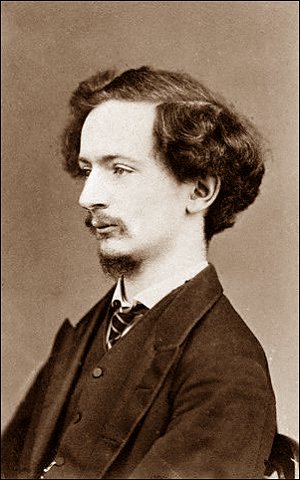
Love and scorn
I
Love, loyallest and lordliest born of things,
Immortal that shouldst be, though all else end,
In plighted hearts of fearless friend with friend,
Whose hand may curb or clip thy plume-plucked wings?
Not grief’s nor time’s: though these be lords and kings
Crowned, and their yoke bid vassal passions bend,
They may not pierce the spirit of sense, or blend
Quick poison with the soul’s live watersprings.
The true clear heart whose core is manful trust
Fears not that very death may turn to dust
Love lit therein as toward a brother born,
If one touch make not all its fine gold rust,
If one breath blight not all its glad ripe corn,
And all its fire be turned to fire of scorn.
II
Scorn only, scorn begot of bitter proof
By keen experience of a trustless heart,
Bears burning in her new-born hand the dart
Wherewith love dies heart-stricken, and the roof
Falls of his palace, and the storied woof
Long woven of many a year with life’s whole art
Is rent like any rotten weed apart,
And hardly with reluctant eyes aloof
Cold memory guards one relic scarce exempt
Yet from the fierce corrosion of contempt,
And hardly saved by pity. Woe are we
That once we loved, and love not; but we know
The ghost of love, surviving yet in show,
Where scorn has passed, is vain as grief must be.
III
O sacred, just, inevitable scorn,
Strong child of righteous judgment, whom with grief
The rent heart bears, and wins not yet relief,
Seeing of its pain so dire a portent born,
Must thou not spare one sheaf of all the corn,
One doit of all the treasure? not one sheaf,
Not one poor doit of all? not one dead leaf
Of all that fell and left behind a thorn?
Is man so strong that one should scorn another?
Is any as God, not made of mortal mother,
That love should turn in him to gall and flame?
Nay: but the true is not the false heart’s brother:
Love cannot love disloyalty: the name
That else it wears is love no more, but shame.
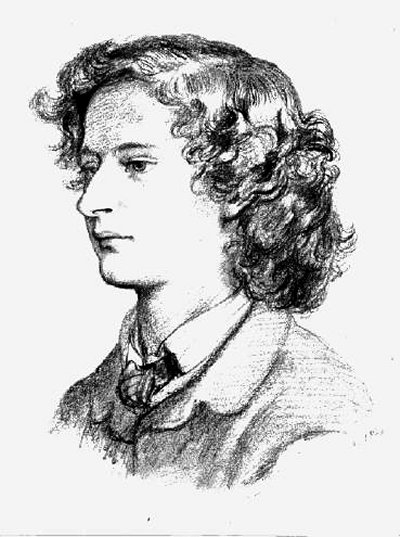
A solitude
Sea beyond sea, sand after sweep of sand,
Here ivory smooth, here cloven and ridged with flow
Of channelled waters soft as rain or snow,
Stretch their lone length at ease beneath the bland
Grey gleam of skies whose smile on wave and strand
Shines weary like a man’s who smiles to know
That now no dream can mock his faith with show,
Nor cloud for him seem living sea or land.
Is there an end at all of all this waste,
These crumbling cliffs defeatured and defaced,
These ruinous heights of sea-sapped walls that slide
Seaward with all their banks of bleak blown flowers
Glad yet of life, ere yet their hope subside
Beneath the coil of dull dense waves and hours?
First and last
Upon the borderlands of being,
Where life draws hardly breath
Between the lights and shadows fleeing
Fast as a word one saith,
Two flowers rejoice our eyesight, seeing
The dawns of birth and death.
Behind the babe his dawn is lying
Half risen with notes of mirth
From all the winds about it flying
Through new-born heaven and earth:
Before bright age his day for dying
Dawns equal-eyed with birth.
Equal the dews of even and dawn,
Equal the sun’s eye seen
A hand’s breadth risen and half withdrawn:
But no bright hour between
Brings aught so bright by stream or lawn
To noonday growths of green.
Which flower of life may smell the sweeter
To love’s insensual sense,
Which fragrance move with offering meeter
His soothed omnipotence,
Being chosen as fairer or as fleeter,
Borne hither or borne hence,
Love’s foiled omniscience knows not: this
Were more than all he knows
With all his lore of bale and bliss,
The choice of rose and rose,
One red as lips that touch with his,
One white as moonlit snows.
No hope is half so sweet and good,
No dream of saint or sage
So fair as these are: no dark mood
But these might best assuage;
The sweet red rose of babyhood,
The white sweet rose of age.
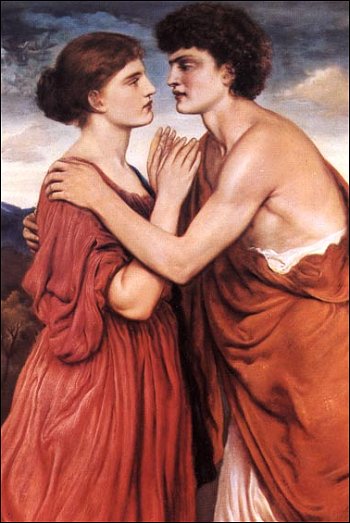
Algernon Charles Swinburne: Five Poems
kempis poetry magazine
More in: PRE-RAPHAELITES, Swinburne, Algernon Charles

Cees van Raak
D r i e g e d i c h t e n
Zelfs de liefde kent een gezicht
Niets wees erop,
niets kondigde het aan.
Zo willekeurig, haast ongepast.
Verwonderd vroeg hij zich af
of het een teken van genade was,
of een proeve.
Waarom het hem overkwam,
waarom daar.
Hij had overal kunnen zijn,
iemand anders, iedere leeftijd
en hij zocht voorbeelden,
woorden om het vast te houden,
te vergelijken, te herinneren voor later.
Tevergeefs, niets leek erop,
niemand had aanleiding gegeven,
hijzelf niet in het minst.
De taal dwaalde, de tijd ontbrak
voor de man
midden in het bos.
De winkel
dit is de winkel
waar gedichten van
Wislawa Szymborska
fonkelen van plezier
ook te koop
een origineel strijkijzer
uit Raumschiff Orion
het is de winkel
waar het mooiste meisje
van de stad werkt
onlangs verliet
een verwarde
eenhoorn het pand
dankbaar uitgeleide
gedaan door
het meisje
dit is de winkel
vol magische onderonsjes

Elsje Christiaens
als een van de velen
zocht zij het geluk in Amsterdam
zij arriveerde op 28 april 1664
drie dagen later was zij
the talk of the town
wie had dat ooit gedacht
watervrees of niet voor
de 18-jarige Elsje Christiaens
voer de oude meester over het IJ
en de kunstenaar hoefde
haar zelfs niet op te tutten
met bont of japon of rafelkraag
zij was het ideale model
zo perfect zij zich aan hem toonde
daar op het galgenveld
en hoewel gewurgd en
de schedel ingeslagen
poseerde zij geduldig
voor eeuwige schoonheid
en het loonde
zij hangt sinds jaar en dag
in het Metropolitan Museum of Art
New York
als een echte Rembrandt

Cees van Raak (1954)
Stadsdichter van Tilburg 2009-2011
kemp=mag – kempis poetry magazine
More in: City Poets / Stadsdichters, Raak, Cees van
Thank you for reading Fleurs du Mal - magazine for art & literature